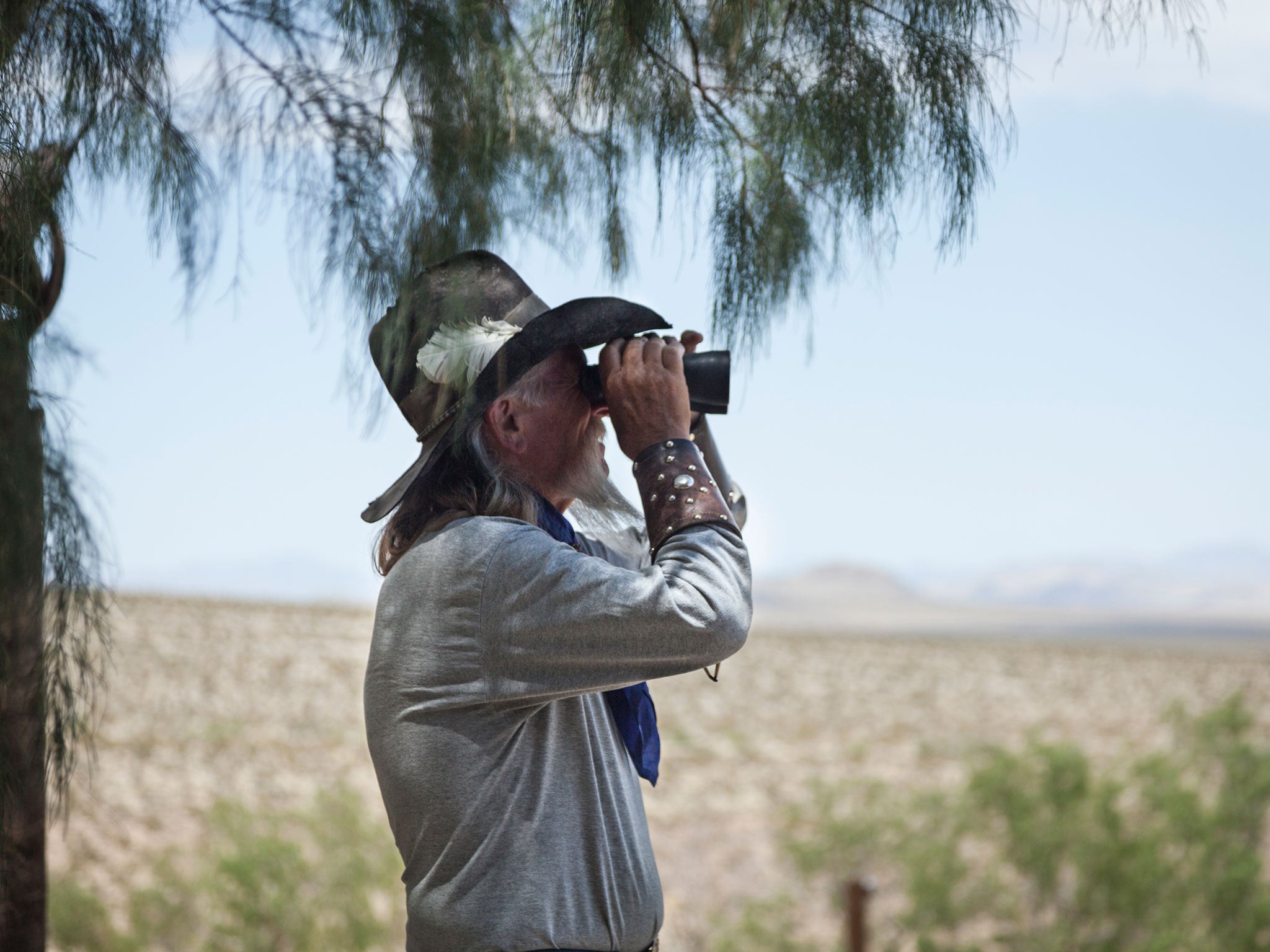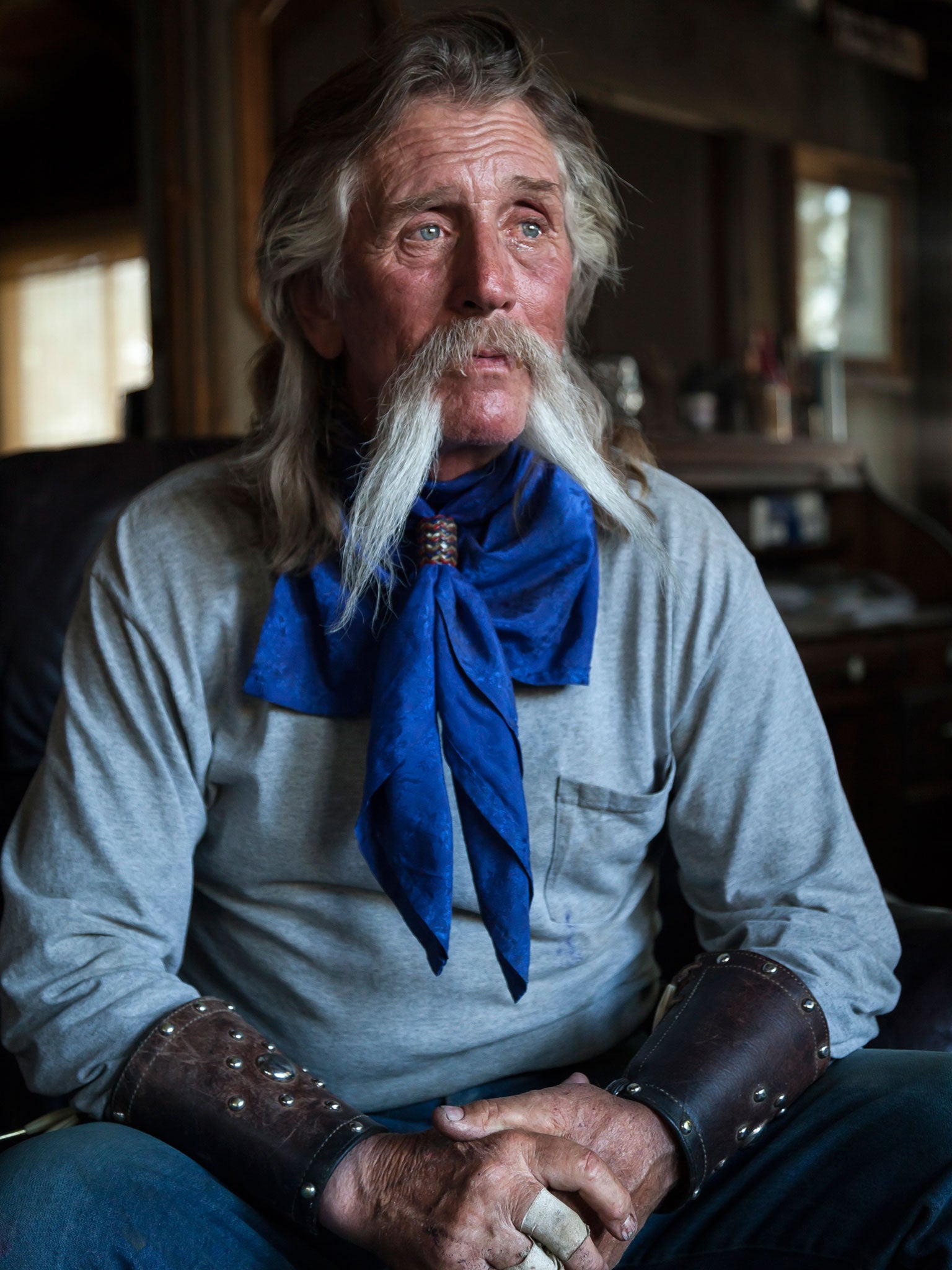Last of the desert cowboys: Zoe Childerley captures the tough life of California cattle rancher Billy Mitchell
Billy Mitchell has spent his life farming the arid Mojave desert, continuously searching for water to slake the thirst of his 140 cattle. The photographer Zoe Childerley discovers what drives him on as he approaches his seventies – and hears of his struggle to convince his four daughters to carry on a 150-year tradition

When Zoe Childerley arrived at Rattlesnake Ranch in California's Mojave to photograph Billy Mitchell, one of the last desert cowboys, it was a culture shock for everybody. "Billy told me a neighbour had moved in six miles away, and that was a bit too close," she says. "There's nothing for miles. It's hard for us to get our heads round, but equally they don't understand what life is like in a city – they asked me how much land I had. I had to tell them about 20 square feet."
Rattlesnake Ranch covers 29,000 acres of arid, rocky terrain made worse by eight years of drought. Somehow, Mitchell scratches out a living in this unforgiving terrain populated by cacti and scorpions. He raises 70 pairs of cattle, crossbred for hardiness, which roam far and wide in search of food and water. For man and beast, it can seem a uniquely unrewarding existence, but Mitchell believes he is blessed. "Billy worked on several ranches as a child, and his grandfather was a rancher," says Childerley, who visited Rattlesnake several times over three months in 2014. "He has a real passion, a love of the life, and this very American idea of land and freedom. He's a romantic. He talks about the past and is very proud that the way they work on the ranch hasn't changed in 150 years. The language, the clothes, the cowboy lifestyle – it feels like being stuck in time."
Childerley's first encounter with Mitchell was on branding day, when the cattle are rounded up to be marked. It's exhausting, dangerous work – one rancher was gored through the leg – but also a social event, with the extended family joining in and everybody eating and drinking together when the work is completed. "They round up the cattle a couple of weeks before, from over long distances, often camping overnight," says Childerley. "Then they brand them and castrate the bulls. It's very hot and quite violent – it's not for the squeamish. But it's also a social occasion; the kids are playing and riding, the women are cooking and chatting."
Mitchell, 67, takes a less active role in branding, preferring to direct operations from his horse. Childerley describes him as "a cattle whisperer", who lows like a cow to attract their attention. "He can spot a cow from miles away," she says. "He'd say, 'Look at that one over there,' and I wouldn't have a clue what he was pointing at."
Mitchell has raised four daughters on the ranch, but now all but one have moved away. "They've grown up," says Childerley. "Serenity, the youngest, is just starting to move out, going to local college. The others have their own families. They'd love to continue ranching but it's difficult to make a living. They may keep it on and run it together. It's something they talk about all the time but haven't found the solution."

In recent years, several neighbouring ranches have closed, and even Mitchell struggles to make his pay, living partly off his pension from a previous job while his wife Julie works part-time in a school. And for Mitchell, the toughness of this existence is not helped by battles with environmentalists protecting species such as the desert tortoise. "He talks about the 'tortoise war'," says Childerley of a cultural conflict with its roots in America's post-Civil War expansion. "The pioneers were encouraged to head west and land was given away, but it became overstocked and, after a drought, hundreds of thousands of cattle died. This spawned a strain of environmentalists who think of the ranchers as irresponsible and needing regulation."
The ranchers, however, are also part of the Mojave's wider community, many of whom have been driven out of the city by the cost of land, or are drawn to the desert by its peace and size. "There's a lot of people really interested in the spiritual nature of the desert, they talk about its emptiness being free of distraction, so you have to look inwards. It is contemplative and calming, but also edgy because of the hostile nature of the landscape and the vastness. It's so big you can drown in it. Billy is also attracted to the isolation and is interested in talking to people about the lifestyle to share his passion even if they are from quite different worlds," says Childerley. Even a world as different as hers. "I didn't eat any beef on the ranch," she says. "I'm a vegetarian. They were incredulous, but they didn't give me too much of a hard time."
For more: zoechilderley.co.uk; milim.com/new-work.php
Join our commenting forum
Join thought-provoking conversations, follow other Independent readers and see their replies
Comments
Bookmark popover
Removed from bookmarks